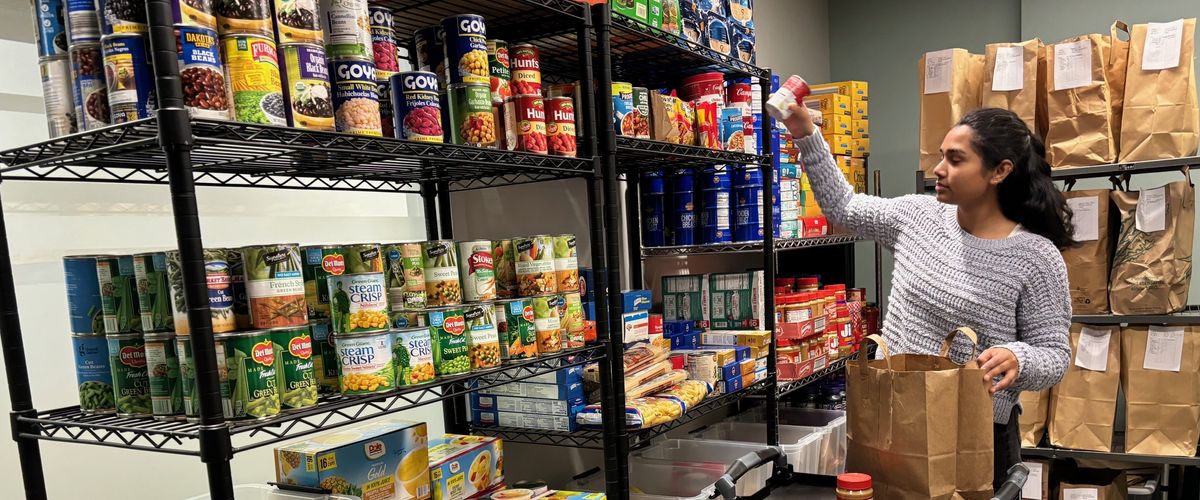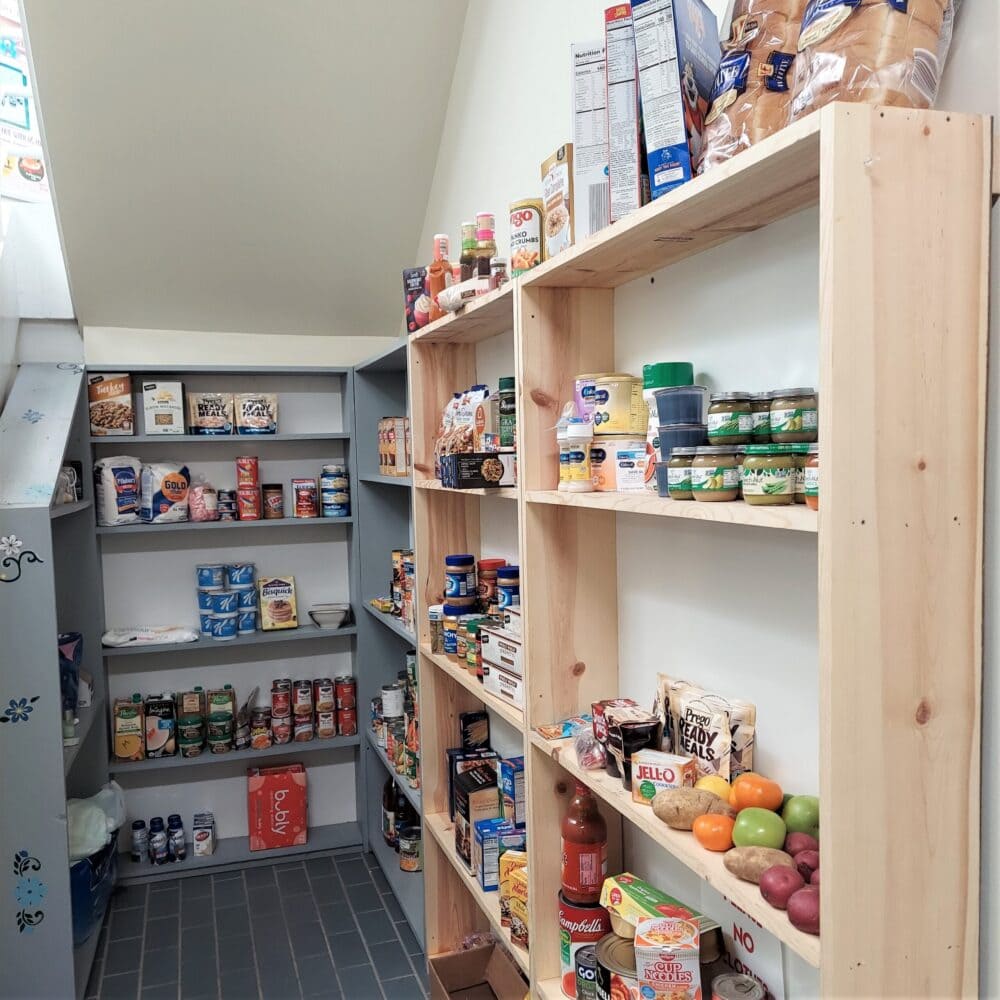Discover Exactly How Food Pantry Lockhart Sustains Local Neighborhoods
Discover Exactly How Food Pantry Lockhart Sustains Local Neighborhoods
Blog Article
Why Sustaining Your Regional Food Pantry Is Vital for Helping Those in Demand
The importance of sustaining local food cupboards can not be overstated, especially in the context of food instability, which affects a disconcerting number of people and households within our communities. As we check out the multifaceted role of food kitchens, it comes to be noticeable that their effect expands much past just dispersing food.
Understanding Food Insecurity
Food insecurity affects approximately 10.5% of homes in the USA, illustrating a substantial public health and wellness problem that goes beyond plain appetite. It describes the lack of consistent access to adequate food for an energetic, healthy life. This problem can cause an array of adverse outcomes, including bad wellness, increased health care expenses, and lessened academic performance among children.
The sources of food insecurity are multifaceted, frequently originating from economic elements such as joblessness, underemployment, and hardship. Geographic place can also play a crucial role, with food deserts-- areas with minimal accessibility to budget-friendly and nourishing food-- worsening the concern - Food Pantry Lockhart. Furthermore, systemic aspects, including social and racial inequities, add to the disproportionate effect of food insecurity on marginalized areas
Resolving food instability is not merely regarding increasing food supply; it needs a thorough approach that includes financial security, education and learning, and community assistance. Food instability not only affects specific well-being however additionally has more comprehensive implications for societal wellness and efficiency. Understanding its complexity is important for establishing reliable interventions and promoting lasting services that guarantee all people have reliable accessibility to healthy food.
The Function of Food Pantries
Neighborhood food pantries work as essential lifelines for individuals and households dealing with food instability. They give essential food things to those who might battle to manage sufficient nutrition due to financial challenge, joblessness, or unforeseen situations. By distributing food at no charge, these organizations assist minimize hunger and avoid the unfavorable health influences related to insufficient diets.
Food cupboards frequently partner with regional farms, food store, and area companies to source a selection of healthy food things, including fresh produce, dairy, and healthy proteins. This partnership guarantees that cupboard customers receive not just nourishment however also healthier choices that add to overall well-being.
Furthermore, food pantries offer as neighborhood hubs, fostering links among locals and offering a feeling of dignity to those in need. Numerous cupboards use extra resources, such as nourishment education and learning and referrals to social solutions, aiding clients browse their obstacles extra successfully.
Essentially, food pantries play a multifaceted duty in combating food instability. They not only address prompt appetite yet additionally encourage households and individuals to enhance their scenarios, thus promoting community strength and communication.

Advantages of Supporting Food Pantries

Sustaining food pantries not only nurtures those in demand yet likewise reinforces the textile of the area. By providing necessary food sources, food cupboards ease appetite and lower food insecurity, which is vital for the wellness and well-being of individuals and households. Accessibility to nourishing food check over here adds to improved physical health and wellness, much better educational results for children, and enhanced psychological wellness, thereby cultivating an extra effective and involved community.
Additionally, supporting food pantries promotes social cohesion. These organizations work as hubs for neighborhood involvement, bringing with each other volunteers, benefactors, and receivers in a common objective to deal with cravings. This collaboration can damage down barriers, foster understanding, and build connections amongst diverse neighborhood members.
Furthermore, contributions to food pantries, whether in the type of food, funds, or time, promote the neighborhood economic situation. Many food pantries focus on sourcing from local manufacturers, therefore supporting local farming and businesses. This develops a cycle of assistance that benefits not just those in requirement however the area overall.
How to Obtain Included
Engagement with food kitchens can take several types, enabling groups and people to make a meaningful impact in their areas. Among the most straight methods to get entailed is by donating food products. Non-perishable things such as canned items, pasta, and rice are always in demand. Monetary donations are also indispensable, as they allow food cupboards to acquire fresh produce and necessary materials.
Volunteering your time is another impactful way to sustain local food pantries. Numerous companies depend on volunteers for sorting, packaging, and distributing food. This hands-on participation not just aids the kitchen yet also promotes a feeling of neighborhood. Additionally, think about organizing food drives within your area, school, or workplace team to raise understanding and gather sources.
Collaborations with regional businesses can additionally enhance assistance for food pantries. By taking these steps, teams and individuals can substantially boost the initiatives of local food kitchens and aid those in demand.
Area Impact and Link
Acknowledging the extensive influence of food cupboards on neighborhood health is essential for cultivating a spirit of connection and collaboration. Food kitchens offer not only as vital sources for those facing food insecurity but likewise as hubs for community involvement. They combine diverse teams-- clients, volunteers, and donors-- creating a read the full info here setting where people can support and attach one another.
The impact of food kitchens expands past mere provision of food; they work as a catalyst for social communication. By taking part in pantry campaigns, area participants can develop partnerships that transcend socioeconomic obstacles. This network of support assists to take apart the preconception usually related to food support, cultivating an environment of approval and understanding.
In addition, food cupboards typically team up with regional companies, schools, and businesses, amplifying their reach and efficiency. These partnerships enhance community strength and urge a cumulative response to food insecurity. As individuals unify in their initiatives to support neighborhood food kitchens, they cultivate a feeling of common function and obligation, reinforcing the concept that everyone has a function to play in making sure that no one goes hungry. Eventually, supporting food kitchens enhances the fabric of the neighborhood as a whole.
Conclusion
Sustaining neighborhood food pantries is necessary in combating food insecurity and boosting the wellness of at risk populaces. Involvement with food pantries promotes area connections, promoting social cohesion and equity.

Report this page